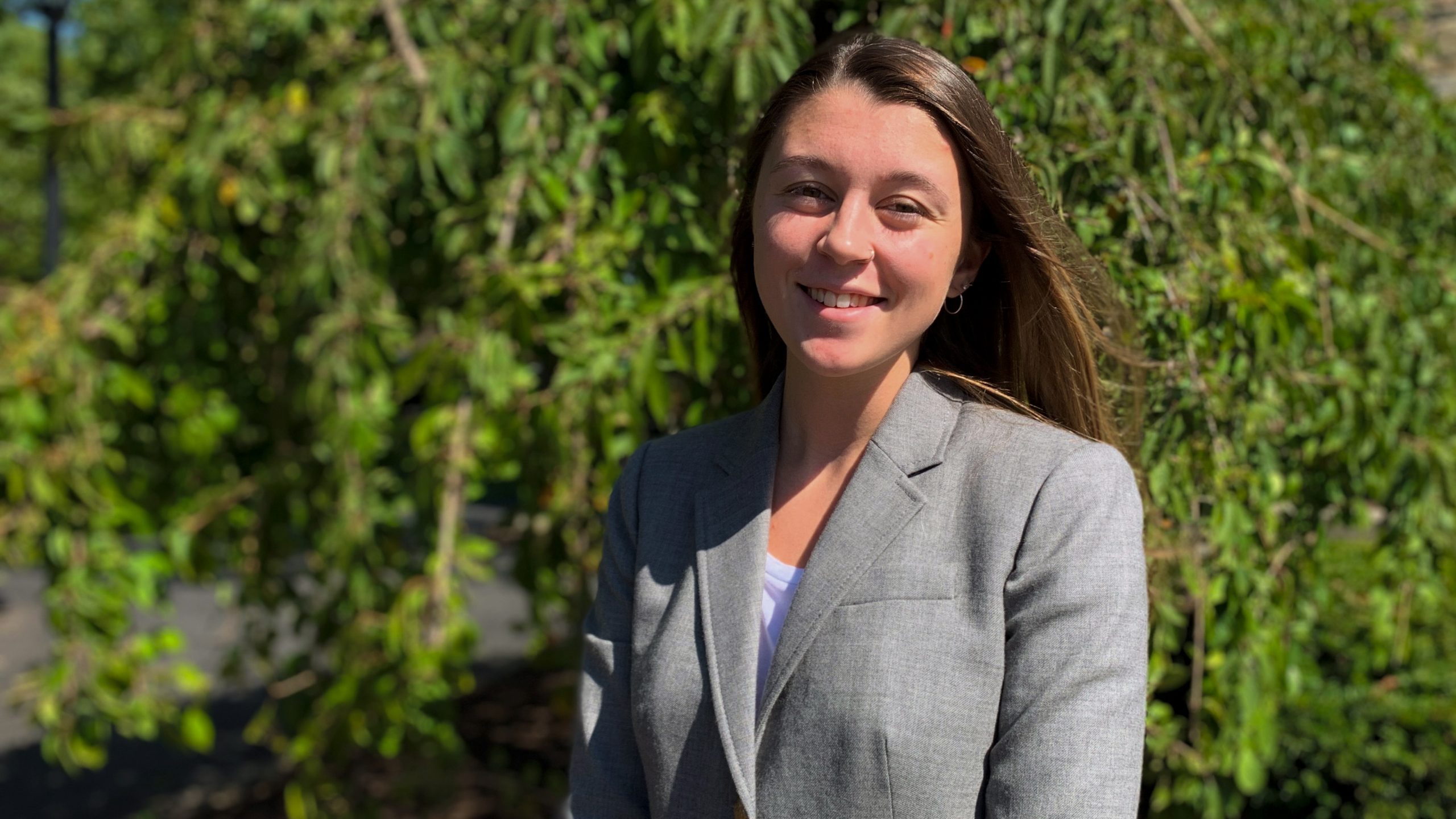
Investigating the human microbiome to promote health
There are countless ways to improve one’s health whether it be a new exercise regime or getting to bed a little earlier. One aspect of human health that is often underappreciated and misunderstood is the human microbiome. The human microbiome is vast and responsible for many of our body’s processes. Lola Holcomb, a Ph.D. candidate in the Graduate School of Biomedical Science & Engineering (GSBSE), studies how the introduction of broccoli sprouts to your gut microbiome can help with inflammation and benefit people with inflammatory diseases like Crohn’s Disease.
Advised by associate professor of Animal and Veterinary Sciences, Sue Ishaq, Holcomb uses bioinformatics as a lens for studying how differences in microbial ecology and nutritional biochemistry contribute to health and disease morbidity, health disparities, environmental issues, and social inequities. This work is part of UMaine’s One Health and the Environment graduate training program, funded by a National Science Foundation Research Traineeship (NRT), which creates a highly integrated learning environment and focuses on interdisciplinary research.
At the core of the research is the interaction between broccoli sprouts and the gut. “The gut microbiome is using the nutrients from broccoli sprouts to produce anti-inflammatory metabolites which then are released to the human body and can reduce inflammation,” explained Holcomb. “So what we’re trying to accomplish through a number of different projects is determining whether or not broccoli sprouts can be an effective preventative or treatment measure for inflammatory diseases, specifically inflammatory bowel diseases.”
Using mouse models, Holcomb and the Ishaq Lab team are focusing on how cruciferous vegetables (specifically broccoli sprouts) and the chemical components of the nutrients found in them can be used as a more accessible alternative to prescription drugs which not everyone may be able to afford. By changing one’s diet, one can support different types of bacteria which could help prevent inflammatory diseases. “Broccoli is a lot more accessible than perhaps a prescription would be,” Holcomb said. This approach offers individuals alternatives to taking a daily pill or a more onerous intervention.
How researchers actually look at the bacteria in our gut can be complicated, especially because it is not completely known which bacteria can make this anti-inflammatory and how they do it . “Previously, our lab has used several methods to study microbiomes,” Holcomb stated. “There are two well established ways to study microbiome communities using genetic sequencing. The first of which is called 16S amplicon sequencing, which provides a good amount about what microbes are present in a community. Then there is 16S which shows us ‘who’ is there. .” Holcomb continued, “However, metagenomics, which is another method of sequencing, provides much more information about what microbes are present, and what their functions are. Metagenomics shows us in detail ‘who’ is there, and what they’re doing. It is a more complicated procedure and more expensive, but that is the direction we are headed”. Using both methods, the team can increase the amount of information they glean from samples, to figure out how these bacteria work.
A couple species of bacteria, such as certain Bifidobacterium and Lactobacillus (commensal bacteria), have been found to like the inactive compound in broccoli sprouts and can be beneficial to one’s health. Although it is difficult to change the microbiome, a consistent change in diet can help people support the bacteria that are already there to thrive, which can have a beneficial effect on the body.
Working with her advisor, Ishaq who leads the Microbes and Social Equity Working Group, has helped Holcomb develop a new interest in policy and the broader impacts that this research could have. For example, promoting community nutrition programs, diet intervention alongside medical treatment, and a better understanding of the barriers people face when trying to lead healthier lives. A healthy human microbiome both helps people live better and is a reflection of the society they are living in. Through works like Holcomb’s, researchers are able to look at how to promote better health outcomes while also better understanding our bodies and lives.
Written by: Daniel Timmermann and Matthew L
Contact: Daniel Timmermann, daniel.timmermann@maine.edu
